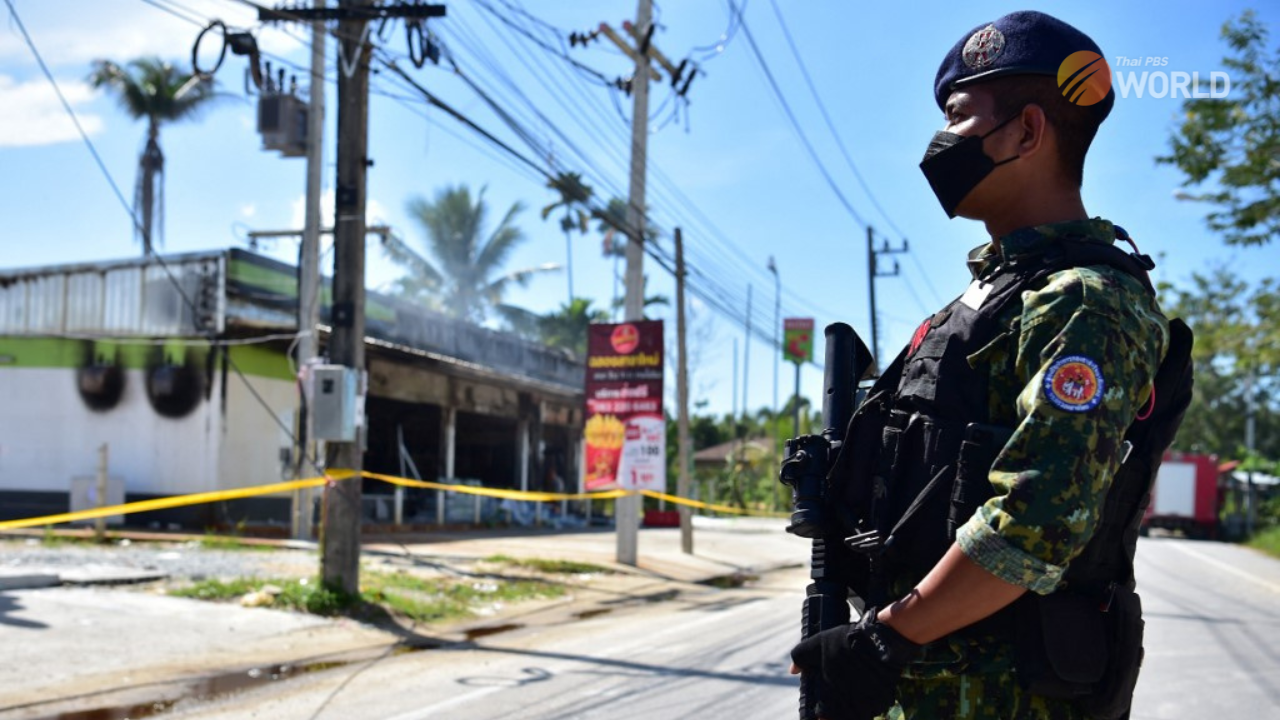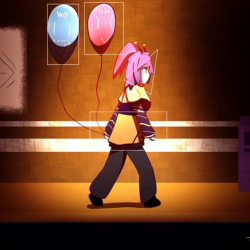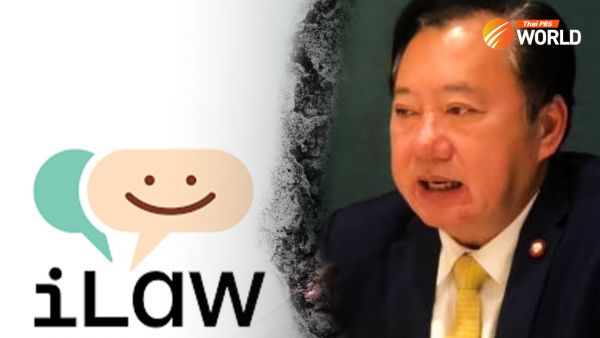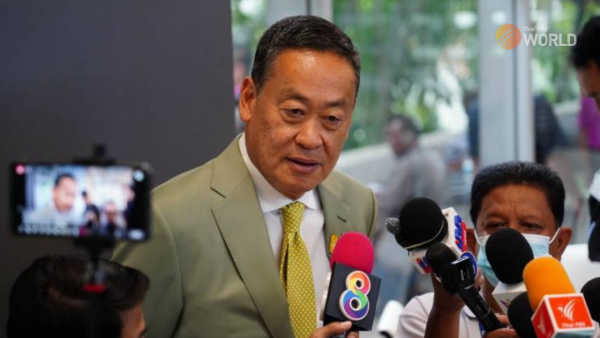Furore over mock referendum could derail deep South peace moves

The first of a three-part series by Thai PBS World’s Political Desk analyses the latest disputes among political forces over the right to self-determination and the peace process in Thailand’s predominantly Muslim region.
The knee-jerk reaction of security agencies and ultra-right-wing groups against student activists and politicians who dabbled with the idea of holding a referendum on self-determination for the historic Patani state could threaten a peace initiative being prepared for the deep South by the government-in-waiting.
The Fourth Army Region and Forward Command of the Internal Security Operations Command (ISOC) filed a lawsuit against a dozen students, activists, and politicians, accusing them of committing unconstitutional and criminal acts after a mock referendum on the right to self-determination in early June.
A group of student activists conducted the mock referendum during an event to launch their newly set up Patanian Student Movement on June 7 at Prince of Songkla University’s Pattani campus. They distributed a questionnaire asking the participants whether they agree with the right to self-determination and allow local residents in the restive South to hold a referendum on independence.
The event prompted a strong reaction from right-wing groups and security agencies who feared that the so-called right to self-determination could justify the separation of the predominantly Muslim region from the Thai kingdom.
General Supot Malaniyom, the secretary-general of the National Security Council, broadened the issue by inviting all relevant agencies, including the ISOC, the Fourth Army Region, and the Ninth Police Region, for a meeting to obtain more intelligence information. Some political parties were involved and supported the student movement, he told reporters.
Article 1 of the 2017 Constitution says: “Thailand is one and indivisible kingdom”. The accused persons could be charged with treason and sedition under Articles 114 and 116 of the Penal Code, respectively, as well as violation of the Computer Law.
Political links
The student movements formed their new organization known locally in the Malay dialect as “Pelaja Bangsa” after the dissolution of the Federation of Patani Students or PerMAS in 2021. The group of student activists has been under surveillance of the authorities for quite some time, over their calls for the right to self-determination and perhaps separatism.
Many of its leaders and key members are relatives of politicians who championed the rights and identity of local people for a long time. Irfan Uma, the head of the Pelaja Bangsa, is a son of Najmuddin Uma, a Bhumjaithai Party politician. A nephew of former minister Wan Muhamad Noor Matha, leader of the Prachachat Party, is also a member of the group.
The event on June 7 was attended by Mark Tamthai, an associate professor at Payap University, Worawit Baru, deputy leader of Prachachat Party, and Hakim Pongtigor, deputy secretary-general of Fair Party. The two parties, which are dedicated to peace in the deep South, are part of a coalition led by the Move Forward Party to form the new government after the May 14 election.
The eight-party coalition has set up a working group to draft the policy and plan for the peace process to be implemented when they form a government under the leadership of Pita Limjaroenrat.
The plan includes restructuring of governance in the deep South, scaling down of military operations, end to the enforcement of many special laws including the Martial Law, the Emergency Act, and the Internal Security Act in the restive region, according to a source in the working group.
A proposal to dissolve the ISOC and restructure the Southern Border Provinces Administrative could be worrisome for the security concern agencies, the source said. “It seems they would do everything to derail our plan,” the source added.
Security officials probe students’ call for referendum on Southern Thailand
Targeting political parties
The legal action taken by the security agencies conformed with the sentiment of right-wing media and activists who spread misinformation about the student movement and politicians, claiming that political parties in the coalition supported the demands of the separatists.
Activist Srisuwan Janya lodged a petition with the Election Commission asking it to investigate the political parties, to consider whether they supported the students’ call for the separation of Pattani from the kingdom. The parties in question could be dissolved if found guilty of committing an unconstitutional act that challenges national sovereignty.
While all parties in the Move Forward-led coalition have declared that they have no policy to support the independence of the predominantly Muslim region, many parties have tried to get off the hook and stay clear of the matter. Fair Party forced Hakim and Yamaruddin Songsiri to step down from their positions as deputy secretary-general and deputy spokesperson, respectively, for their participation in the event without the party’s permission.
Hussein Buenae, secretary-general of the Belaja Bangsa, told local media that the students had just exercised their right to freedom of expression. They had only started a discussion on the right to self-determination, and were not asking for separation. The referendum, if really needed, would be conducted under the Thai legal framework, he said.
Self-determination not separation
Scholar Mark, who has studied the peace process for a long time, delivered his speech at the event to explain the right to self-determination and peace in Patani. He clarified to local media, The Reporters, later that student activists had done nothing that could be interpreted as a separation of historic Patani from Thailand. The term right to self-determination was not automatically equivalent to independence, he said.
Bangkok elite are especially over-sensitive to the idea of justifying the right of local people in the deep South to have even limited autonomy if not independence, since the region was annexed into the Thai territorial sovereign more than a century ago. Separatists under many names, including the Patani United Liberation Organization, Bersatu, Mujahideen, and Barisan Revolusi Nasional, have been active in Thai contemporary history, but Bangkok has never recognized them.
Some of them resorted to violence to call attention and deal with their grievances. The governments over the past years have been struggling to contain the current wave of violence that erupted in early 2004 and has killed more than 7,000 people so far.
A closer look at the coalition’s ‘Fair’ peace plan for insurgency-hit Deep South
Locals want autonomy
While separatism might exist in the deep South, academic research and surveys over the past years indicated that the majority of local residents wanted just a certain degree of autonomy, not exactly independence of the Patani state.
Six rounds of polls, entitled Peace Survey, conducted by the Institute for Peace Studies, Prince of Songkla University between February 2016 and August 2021 indicated that only 7.9 percent of the average 1,500 people who answered the questionnaire sought independence. The majority of average 49.2 percent of the sampling said they wanted to stay with Thailand and 60 percent wanted a special form of governance that fit their identity and ways of life.
However, 36.1 percent of the sampling said they could neither answer nor decide as they fear the consequences of their answers, but researchers offered no further explanation beyond saying that the issue was very sensitive to the local residents.
By Thai PBS World’s Political Desk






